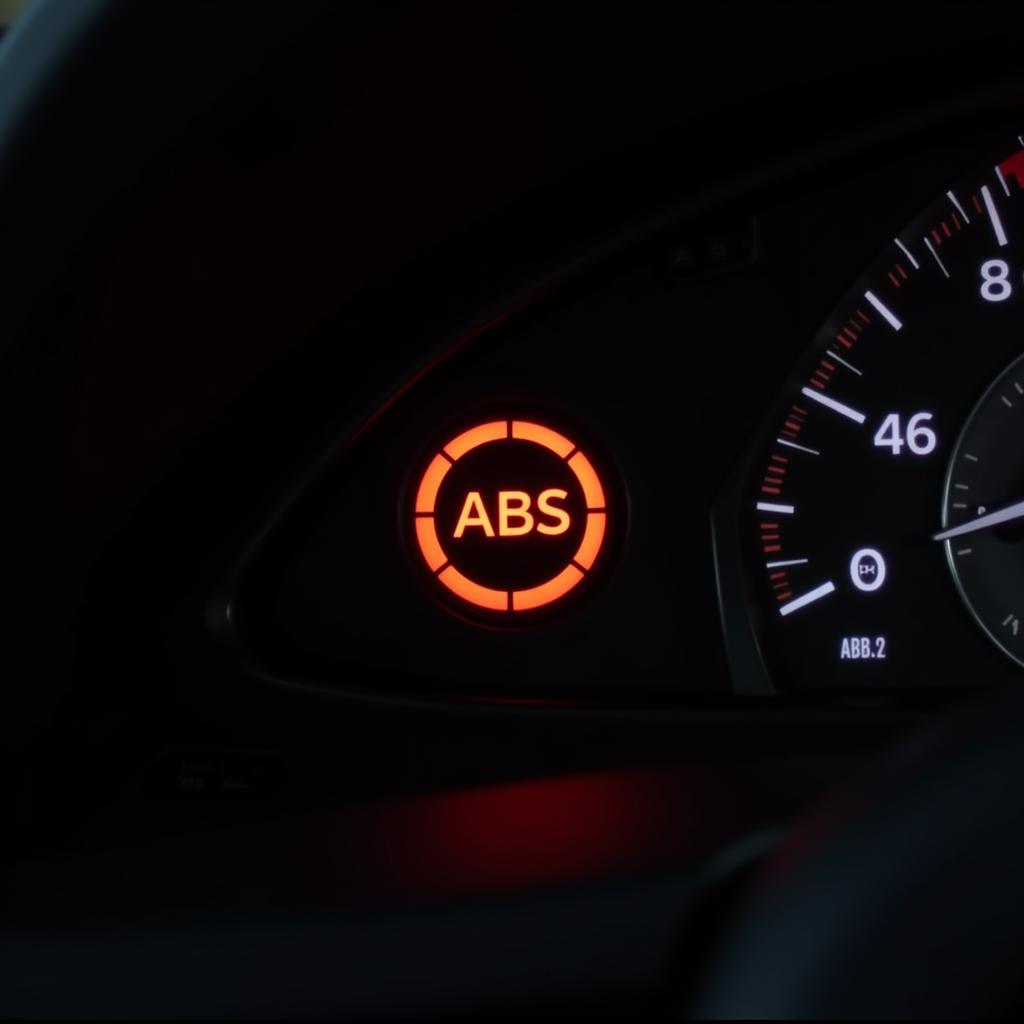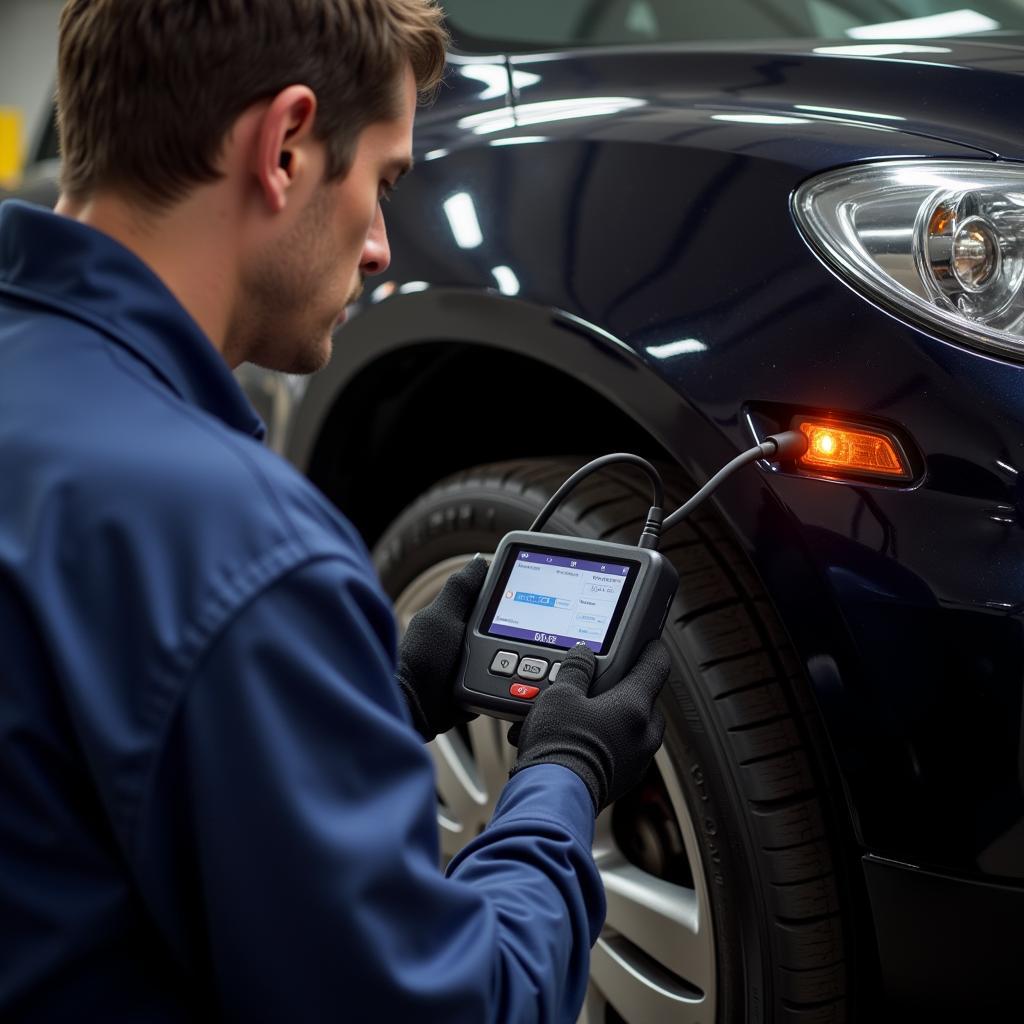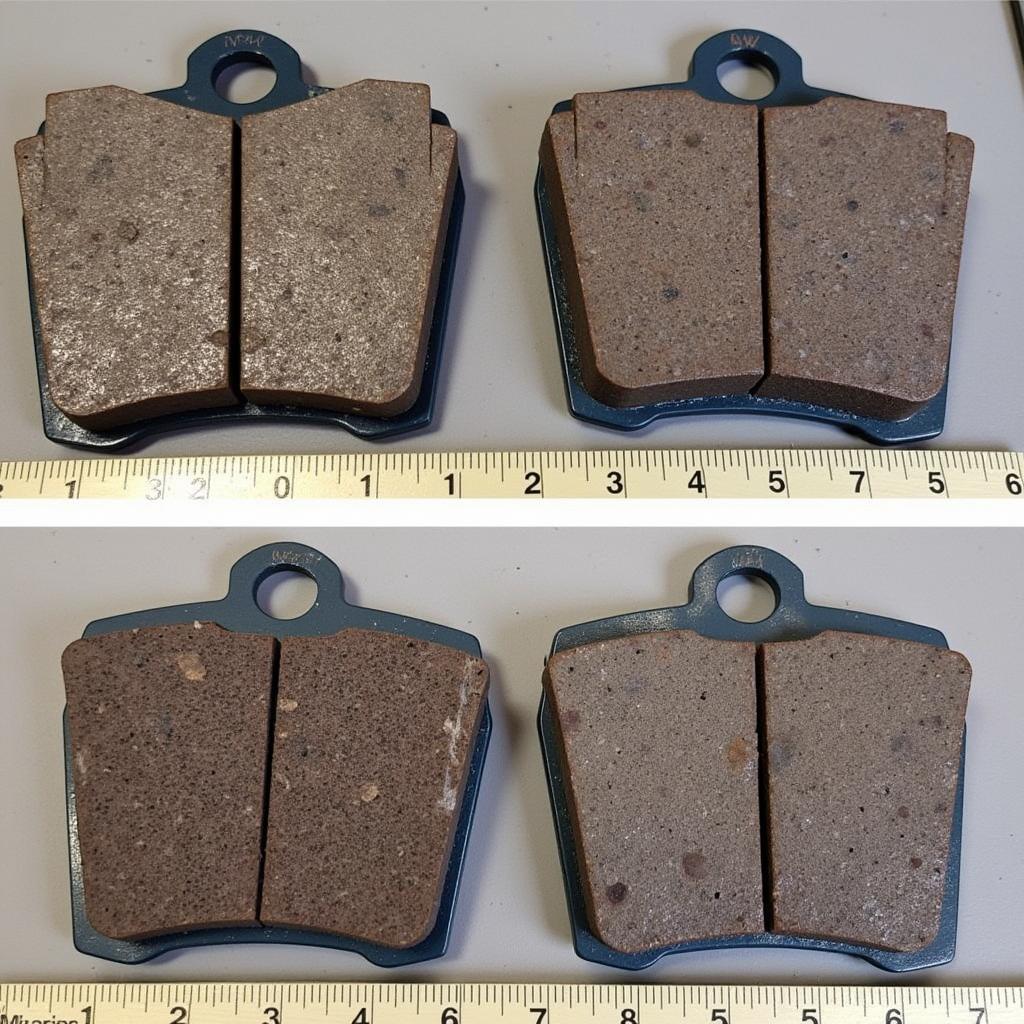The anti-lock brake warning light, often appearing as “ABS” or a circled “ABS” symbol, is a crucial indicator of your vehicle’s safety system. When illuminated, it signals a potential issue with your Anti-lock Braking System (ABS), which plays a vital role in maintaining control and stability during hard braking. Ignoring this warning could compromise your ability to stop safely, particularly on slick surfaces.
Deciphering the ABS Warning Light
Seeing the ABS light come on doesn’t necessarily mean a complete system failure. It’s your car’s way of saying, “Hey, something needs attention.” Here’s a breakdown of possible scenarios:
- Momentary Flicker: A brief flicker, especially during hard braking on a slippery surface, can be normal. It indicates the ABS is engaging and preventing wheel lockup.
- Solid Illumination: A constant ABS light signals a potential malfunction within the system. This could range from a faulty sensor to a more serious issue.
- ABS and Brake Warning Light On: This combination usually suggests a critical problem within the braking system itself, extending beyond just the ABS. Immediate attention is required.
 ABS Warning Light on Dashboard
ABS Warning Light on Dashboard
Common Causes of ABS Warning Light Activation
Understanding the potential culprits behind the ABS warning light is the first step to getting it addressed:
- Faulty Wheel Speed Sensor: These sensors, located at each wheel, relay information to the ABS control module about wheel rotation speed. A malfunctioning sensor can trigger the warning light.
- Malfunctioning ABS Module: The ABS module is the brain of the system, processing sensor data and regulating brake pressure. A faulty module can disrupt the entire system.
- Low Brake Fluid: Insufficient brake fluid levels can also trigger the ABS warning light. This usually indicates a leak in the braking system, requiring immediate attention.
- Damaged ABS Wiring or Connectors: Worn-out or damaged wiring and connectors can disrupt communication within the system, leading to the warning light.
What to Do When the ABS Light Turns On
- Don’t Panic: While the ABS warning light indicates a problem, it doesn’t mean your brakes have failed completely. Your standard braking system should still function.
- Exercise Caution: Be extra careful, especially on wet or slippery roads. Avoid hard braking if possible.
- Get It Diagnosed: Don’t delay in getting your vehicle to a qualified mechanic specializing in automotive electrical diagnostics.
- Professional Diagnosis is Key: A mechanic with the right diagnostic tools can pinpoint the exact cause of the ABS light.
- Avoid DIY Repairs: The ABS system is complex and interconnected with other critical systems. Tampering with it without proper knowledge can be dangerous.
 Mechanic Diagnosing ABS Problem Using a Diagnostic Tool
Mechanic Diagnosing ABS Problem Using a Diagnostic Tool
“Attempting to diagnose or repair an ABS system without the proper training and equipment is like trying to perform surgery with a butter knife – risky and likely to cause more harm than good,” cautions automotive electrical expert, Johnathan Miller.
Importance of a Functioning ABS System
A fully operational ABS provides significant safety benefits:
- Prevents Wheel Lockup: This is the primary function of ABS. It prevents the wheels from locking up during hard braking, allowing you to maintain steering control.
- Reduces Stopping Distances: By preventing skidding, ABS can shorten stopping distances, especially on slick surfaces.
- Enhances Vehicle Stability: ABS helps maintain vehicle stability during emergency braking, making it less likely to spin out of control.
seat alhambra brake pad warning light
Preventing Future ABS Issues
- Regular Brake System Inspections: Schedule routine brake system checks, including brake fluid levels, to catch potential problems early.
- Quality Brake Pads and Rotors: Use high-quality brake pads and rotors to ensure optimal braking performance and reduce strain on the ABS.
- Avoid Riding the Brakes: Constantly hovering your foot over the brake pedal can overheat the braking system and potentially trigger ABS issues.
Conclusion
The ABS warning light is a crucial safety indicator that should never be ignored. While a momentary flicker might not be a cause for immediate concern, a persistent light requires prompt attention from a qualified automotive electrician. Remember, a functioning ABS is essential for optimal braking performance and overall vehicle safety.
“Addressing ABS issues promptly not only restores your vehicle’s safety features but also provides peace of mind, knowing you have the best chance of avoiding a potentially dangerous situation,” emphasizes Miller.

